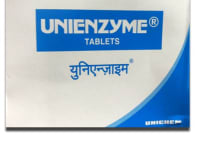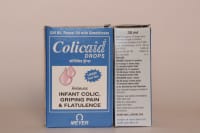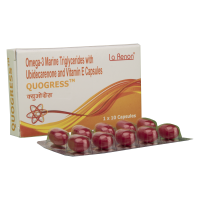USED FOR:
Intestinal ulcers
Local anesthesia (Numb tissues in a specific area)
Stomach ulcers
COMPOSITION:
Sucralfate (NA)
Oxetacaine / Oxethazaine (NA)
Therapeutic Uses:
gastro intestinal
pain analgesics

Interaction with alcohol is unknown. Please consult your doctor.

Unknown. Human and animal studies are not available. Please consult your doctor.

No information is available on the use of Ulcoat O 100ml Suspension during lactation. Please consult your doctor.

Ulcoat O 100ml Suspension may make you feel dizzy, sleepy, tired, or decrease alertness. If this happens, do not drive.

CAUTION
Ulcoat O 100ml Suspension should be used with caution in patients with kidney disease. Dose adjustment of Ulcoat O 100ml Suspension may be needed. Please consult your doctor.

There is limited information available on the use of Ulcoat O 100ml Suspension in patients with liver disease. Please consult your doctor.
Uses of Diclofenac
Diclofenac is used in fever, headache, arthralgia, muscle pain, dental pain, post operative pain, pain during menstruation, osteoarthritis, rheumatoid arthritis, ankylosing spondylitis and gout.
Uses of Sucralfate
Sucralfate is used in the treatment of intestinal ulcers and stomach ulcers.
How to use Diclofenac
Take this medicine in the dose and duration as advised by your doctor. Swallow it as a whole. Do not chew, crush or break it.
How to use Sucralfate
Take this medicine in the dose and duration as advised by your doctor. Check the label for directions before use. Measure it with a measuring cup and take it by mouth. Shake well before use. Ulcoat O 100ml Suspension is to be taken empty stomach.Take it preferably 15 minutes before food.
How Dicka XP Tablet works
Diclofenac is a non-steroidal anti-inflammatory drug (NSAID). It works by suppressing the production of chemical messengers (prostaglandins) that cause inflammation (redness and swelling), fever and pain.
How Ulcoat O 100ml Suspension works
Sucralfate forms a coating over the ulcer or any other raw surface. This creates a physical barrier that protects the ulcer/raw surface from the gastric acid or any other injury, allowing it to heal.
Common Abdominal pain, Constipation, Diarrhoea, Epigastric pain, Flatulence, Nausea, Vomiting, Indigestion.
Common Constipation.
Expert advice for Diclofenac
It should be taken with food or milk to avoid getting an upset stomach. It can cause serious complications like stomach bleeding and kidney problems if taken for a long time. Diclofenac can raise a risk of blood clots, heart attack, or a stroke. Inform your doctor if you are pregnant or planning to conceive or breastfeeding. Inform your doctor if you have ever been diagnosed with kidney or liver problems.
Expert advice for Sucralfate
Do not take the Sucralfate at least 2 hours before or after taking other medicines. It may interact with these other medicines Take Sucralfate on an empty stomach, preferably 1 hour before a meal. Avoid taking antacids, before or after 30 minutes of taking a dose of Sucralfate. Notify your doctor if you have a kidney disorder, as it may put you at a greater risk of developing aluminum overload. Notify your doctor, if you are or planning to become pregnant.
Q. Can Diclofenac be used along with warfarin?
No. Using Diclofenac together with warfarin can increase the risk of serious bleeding from the stomach (Higher than users of either drug alone). Inform your doctor before starting these medications.
Q. Is Diclofenac a painkiller?
Yes. Diclofenac is a pain killer. In fact, it belongs to the class of drugs called non-steroidal anti-inflammatory drugs (NSAIDs). It is commonly used for the treatment of pain in osteoarthritis, rheumatoid arthritis and spondylitis.
Q. Is Diclofenac a narcotic?
No, Diclofenac is not a narcotic. Narcotics are drugs with sleep inducing properties, usual derivatives of Opium like Heroin and Morphine.
Q. Can I use Diclofenac along with vitamins?
Yes, Diclofenac can be taken with vitamins. No drug-drug interactions or any harmful effects have been reported when they are used together.
Q. Can Diclofenac be used for the treatment of hepatitis?
No, Diclofenac is not approved for the treatment of hepatitis. Hepatitis is a condition where the liver is inflamed. Diclofenac can, in fact, cause harm to the liver as a side effect.
Q. Can Diclofenac be used after C-section?
Yes, Diclofenac is a pain killer. C-section is the short name for Cesarean Section which is an operative procedure to deliver the baby through the mother's abdomen and uterus. Diclofenac can be used to treat the pain that may occur after the operation.
Q. Can I take Diclofenac along with misoprostol?
Yes. It can be taken together. Misoprostol protects the stomach from irritating gastric effects of Diclofenac. The combination of medication is used to treat arthritis in patients at high risk of getting stomach/intestinal ulcers and complications from the ulcers (such as bleeding).
Q. Can I take Diclofenac while I am on thyroxine?
Yes, Diclofenac can be taken with thyroxine. No drug-drug interactions or any harmful effects have been reported when they are used together.
Q. Why Diclofenac should be stopped before surgery?
Since Diclofenac has been shown to have blood thinning effects, it can increase the risk of bleeding. Therefore, it is stopped before surgery to prevent excessive loss of blood.
Q. What are the contraindications for Diclofenac?
Diclofenac should not be used if there is an allergic reaction (hypersensitivity) to it, or other pain killers, active ulcer in the stomach, bleeding from the stomach, history of severe heart failure, liver failure, kidney failure and or heart attack.
Q. Can Diclofenac affect the chance of conceiving?
Yes. Diclofenac can sometime cause reversible infertility. Diclofenac by its mechanism of action, may delay or prevent rupture of ovarian follicles, which has been associated with reversible infertility in some women. Consult your doctor before starting this medication.
Q. Why does Diclofenac cause an ulcer?
Diclofenac can cause damage to the lining cells of the stomach by several mechanisms, including the irritant effect on the cells, breaking of the protective barrier properties of lining cells, suppression of prostaglandin production of the stomach, reduction of stomach mucosal blood flow and interference with the repair of superficial injury of the stomach lining.
Q. Why is Diclofenac contraindicated in asthma?
Some patients with asthma are hypersensitive to non-steroidal anti-inflammatory drugs (NSAID) like aspirin which can lead to acute attacks of asthma. Consult your doctor before starting this medication.
Q. Is Diclofenac good for back pain?
Yes, Diclofenac has been found to be effective to reduce back pain. Diclofenac is a pain killer that belongs to the NSAIDs (Non-Steroidal Anti-Inflammatory) class. Other NSAIDs have also been found to be useful in back pain eg. Ibuprofen and Naproxen.
Q. Can I use Diclofenac during my fever treatment?
Yes, Diclofenac can reduce fever. However, commonly used to reduce the pain, particularly that which is seen with Osteoarthritis, Rheumatoid Arthritis and Ankylosing spondylitis.
Q. Can I use Diclofenac to treat a sore throat?
Sore throat is mostly caused by bacteria so antibiotics are given to treat a sore throat whereas Diclofenac is a pain killer so it can be given in cases of throat pain associated with it but only under the prescription of a doctor.
Q. Can I use Diclofenac to treat urinary tract infections (UTI)?
Diclofenac can be used to treat the pain associated with urinary tract infection (UTI) but for complete treatment, a course of antibiotics will be required.
Q. Can Diclofenac cause sedation?
Diclofenac is not known to cause sedation. There have been rare, an isolated case report of sedation with the drug.
Q. Can I take Diclofenac for kidney stones?
Yes,Diclofenac can be used to relieve the pain due to kidney stones. However, there is also a risk of kidney damage with Diclofenac as its side effect. It is advised not to take Diclofenac for a prolonged time for this condition without adequate monitoring.
Q. Can I use Diclofenac for the treatment of arthritis?
Yes, Diclofenac is commonly used for the treatment of pain in osteoarthritis, rheumatoid arthritis, and spondylitis.It belongs to the class of drugs called non-steroidal anti-inflammatory drugs (NSAIDs). .
Q. Can I use Diclofenac with diuretics?
No, Diclofenac should not be used with diuretics. Diclofenac reduces the natriuretic effect of furosemide and thiazides diuretics in some patients. This response has been attributed to inhibition of renal prostaglandin synthesis.
Q. Can I use Diclofenac with mifepristone?
These drugs should not be used together as the effect of mifepristone may be lowered by Diclofenac. Mifepristone is used for medical abortion.
Q. Can I use Diclofenac with lithium?
No.These drugs should not be used together as Diclofenac increases the blood levels of lithium which may further increase the side effects.
Q. Is Sucralfate an antibiotic/sulfa drug/pain-killer/PPI?
Sucralfate is not an antibiotic/sulfa drug/ PPI (proton-pump inhibitor) or a pain-killer. It is an ulcer protective medicine
Q. Is Sucralfate available or sold over the counter?
No. Sucralfate is a prescription drug. It is not available or sold over the counter
Q. Is Sucralfate gluten free?
Yes. Sucralfate is gluten free. However, please refer to package insert of the prescribed brand before use
Q. Is Sucralfate safe?
Yes. Sucralfate is relatively safe if used as recommended. In case of any side-effects, consult your doctor
Q. Can I take Sucralfate with Prilosec/Nexium/ Tylenol/Zantac/ibuprofen/Pepto?
Yes. Sucralfate can be taken with Prilosec/Nexium/ Tylenol/Zantac/ibuprofen and Pepto if prescribed by your doctor
Q. Does Sucralfate cause headaches/weight gain/insomnia/ heartburn?
Sucralfate does not cause headaches/weight gain/insomnia or heartburn. If you experience any such symptoms, please consult your doctor
Q. Is Sucralfate a narcotic drug?
No. Sucralfate is not a narcotic drug.
Uses of Oxetacaine / Oxethazaine
Oxetacaine / Oxethazaine is used for local anesthesia.
How to use Oxetacaine / Oxethazaine
Take this medicine in the dose and duration as advised by your doctor. Check the label for directions before use. Measure it with a measuring cup and take it by mouth. Shake well before use. Ulcoat O 100ml Suspension is to be taken empty stomach.Take it preferably 15 minutes before food.
How Ulcoat O 100ml Suspension works
Oxetacaine / Oxethazaine works by blocking pain signals from the peripheral nerves to brain which decreases the sensation of pain.
Common Constipation, Diarrhoea, Dizziness, Weakness, Drowsiness, Dryness in mouth, Headache, Hypersensitivity reaction, Loss of appetite, Nausea.
Expert advice for Oxetacaine / Oxethazaine
Avoid continuous use for long durations.
Swallow the whole tablet, do not crush or chew, as doing this may cause numbing of the mouth.
Tell your doctor if you have any kidney disorder, inflammation of a part of the intestine (appendicitis) or decreased levels of potassium in the blood.If you are elderly patient, you may prescribed lower doses and will be recommended medical supervision.
Tell your doctor if you are pregnant or planning to become pregnant or are breastfeeding.
Do not take if allergic to oxetacaine or any of its ingredients.


 Ulcoat O 100ml Suspension
Ulcoat O 100ml Suspension  Bookmark
Bookmark





















